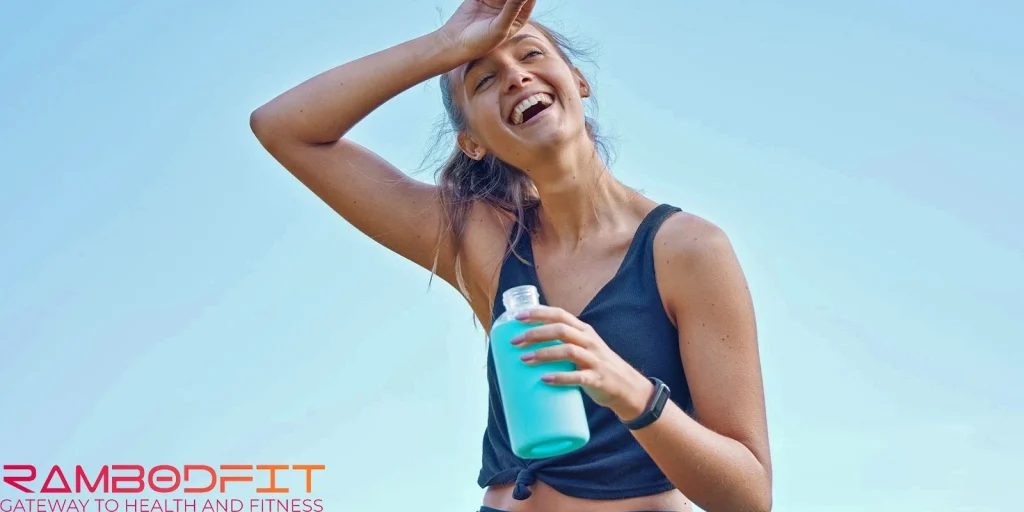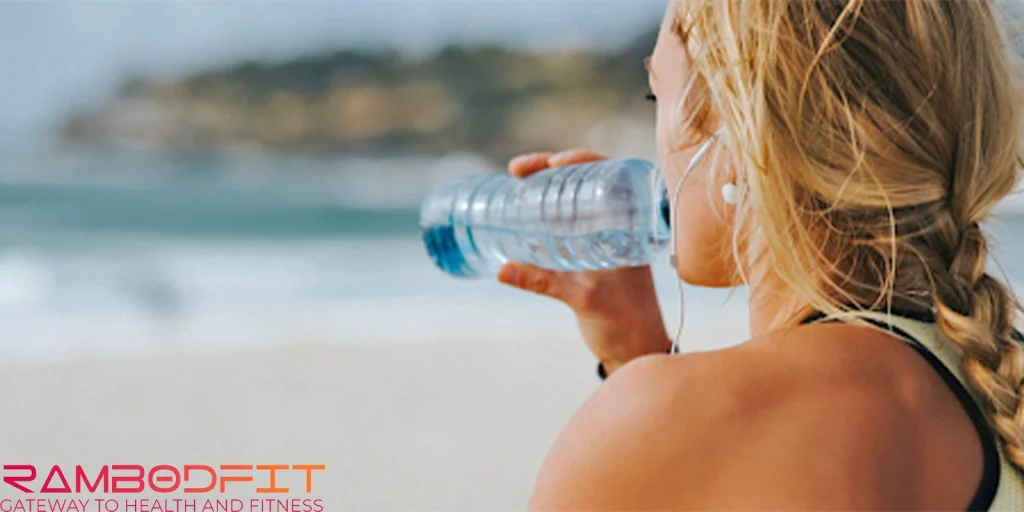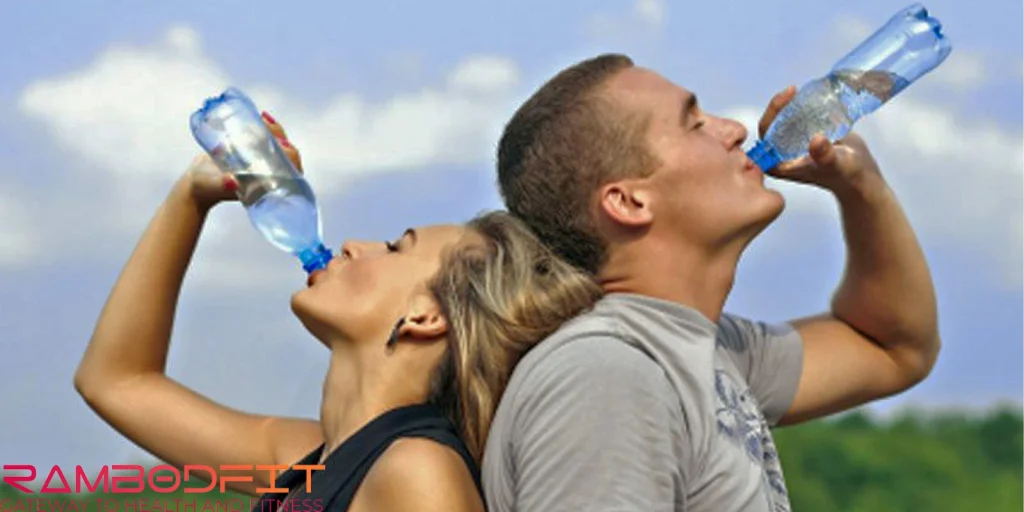


In the ever-changing fitness, nutrition, and athletic performance scene, trends come and go — but one term has stayed relevant: electrolytes for athletic hydration. These small charged particles mean more than fancy words on bright sports drink labels. They play a key role in muscle movements, nerve signals, hydration, and even clear thinking.
At their heart, electrolytes for athletic hydration are key minerals that carry an electric charge. This charge enables them to do vital jobs in the body, such as:
If you don’t have the right mix of electrolytes for athletic hydration, even the best-trained body can hit a rough patch, feeling tired, getting cramps, and not doing its best. At Rambodfit, let us elaborate more on this matter.
Table of Contents

Learning about electrolytes is like getting to know your body’s performance engine inside out. Each mineral plays a key, one-of-a-kind part in how your body works:
The main electrolytes you should know about are:
These minerals don’t pop up out of nowhere — your diet brings them in, sweat and pee take them out, and they’re always changing based on your workouts, the weather, how much water you drink, and your overall health.
These two minerals play a key role in fluid balance and blood volume. Sodium is the main electrolyte outside the cell, while potassium is inside. Together, they keep osmotic balance and control blood pressure. They function through the sodium-potassium pump, an active transport system that helps move nutrients in and waste out of cells.
When you sweat during hard workouts, in hot or humid weather, you can lose a lot of sodium. That’s why salty sweat or white marks on gym clothes aren’t just looks; they’re signs of what’s happening in your body.
Magnesium plays a key role in more than 300 enzyme reactions, including the production of ATP, the main energy source for your muscles. It also helps muscles relax after they contract, which cuts down on cramps and twitches.
Calcium has a big impact on muscle contractions. When your brain tells a muscle to contract, calcium acts as the messenger to make this happen. It also helps nerve signals travel across synapses, which is crucial for quick reflexes and good coordination.
Chloride teams up with sodium to keep fluid balance and pH levels in check. It’s a component of the hydrochloric acid in your stomach, which helps digestion — a key but often ignored factor in performance.
What Happens When You Don’t Have Enough?
Even a small shortage of these electrolytes can lead to:
These signs aren’t just bothersome — they can throw off your progress and make you more likely to get hurt. Long-term shortages might even affect your heart rhythm and kidney health.

Let’s dive into the reasons why keeping your electrolyte levels in check matters. If you’re pushing yourself at the gym or on the track, this part is crucial for your hydration strategy.
1. Better Hydration in Tough Conditions
When you’re running in hot weather or hitting the sauna after a workout, your body needs more electrolytes. Adding back lost minerals helps keep your blood volume up, control your body temperature, and reduce strain on your heart.
2. Fewer Muscle Cramps and Less Weakness
Cramps during or after exercise often happen because of dehydration and not enough electrolytes, low sodium, magnesium, or potassium. Taking supplements at the right times can help cut down on painful muscle spasms.
3. Long-lasting Muscle Performance During Hard Training
Electrolytes influence muscle contraction efficiency and help stop early tiredness. If you’re working out for stamina, HIIT, or to get stronger, you need to pay attention to them.
4. Help for Your Nervous System
Every idea, move, and response happens because of electrical signals going through your nerves, and electrolytes are like the power lines for this system. Calcium, sodium, and potassium all play a part in making sure these signals are quick and precise.
Pro tip: Eating Low-Carb or Fasting? You Might Not Have Enough Electrolytes
If you follow a low-carb keto or intermittent fasting plan, your body loses more sodium and potassium because your insulin levels drop. Lower insulin means your body holds less water, which helps reduce bloating, but also makes it harder to keep electrolytes.
Fix it: Take at least 500–1000 mg of sodium before you work out if you haven’t eaten. Eat foods rich in potassium, like avocado or spinach, and think about taking a magnesium glycinate supplement at night to help your body recover.
Salt often gets a bad rap in popular health discussions, but here’s the truth: your body needs salt to take in sugar. The sodium-glucose linked transporter (SGLT1) in your gut requires both salt and sugar to work well.
What does this mean? Not enough salt = poor sugar absorption. This results in less fuel for your exercise sessions and slower glycogen buildup afterward.
The right timing is key. Here’s when you should focus on replacing electrolytes for the best results:

Here’s the surprise: drinking plain water without electrolytes when you’re already low can worsen your condition — it thins out your blood sodium levels (a condition called hyponatremia).
To hydrate, you need the right mix of water and electrolytes. This balance helps:
If you’re aiming to build muscle, run faster, or just avoid feeling like a dried-up grape after exercising, electrolytes are essential.
More Reading & Resources
If you want to learn more about the science of electrolytes for athletic hydration:
Your activity level and diet determine this. People who do sports, follow keto or fasting plans, or sweat a lot might need extra supplements. Foods like bananas (for potassium), dairy (for calcium), and leafy greens (for magnesium) help, but they might not be enough for hard training.
Powder mixes or pills with the right mix of sodium, potassium, and magnesium work best. Stay away from sweet sports drinks full of fake ingredients. Go for clean, science-backed products — ones that tell you how much sodium they have (at least 500 mg in each serving).
Signs include regular muscle cramps, fatigue, headaches, dizziness, and slow recovery. White marks on gym clothes, craving salt, and mental fog also suggest low electrolytes for athletic hydration.